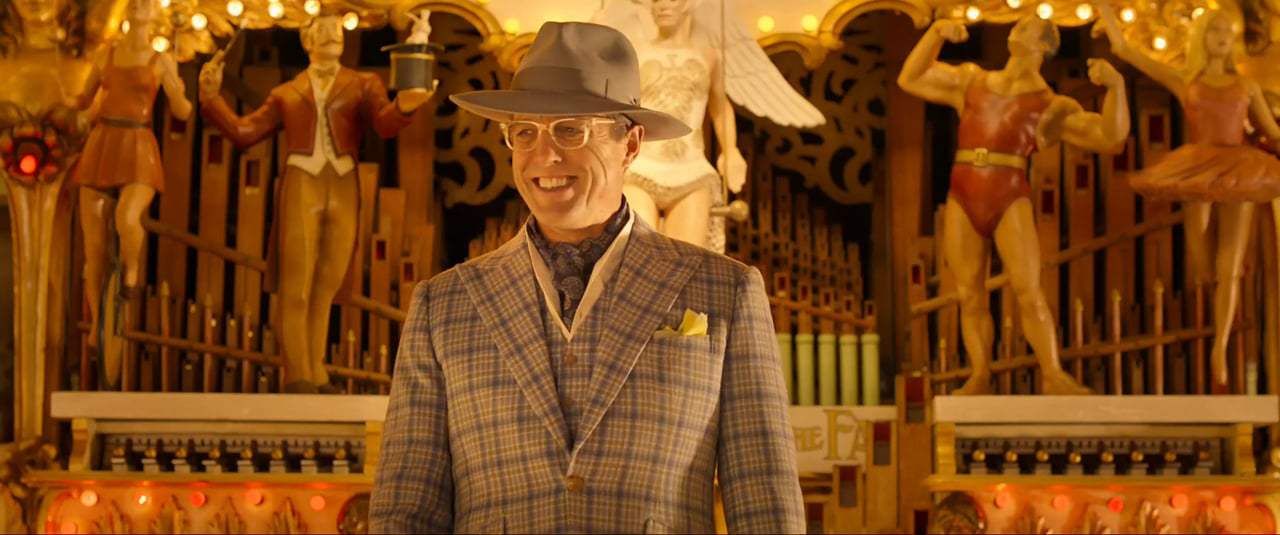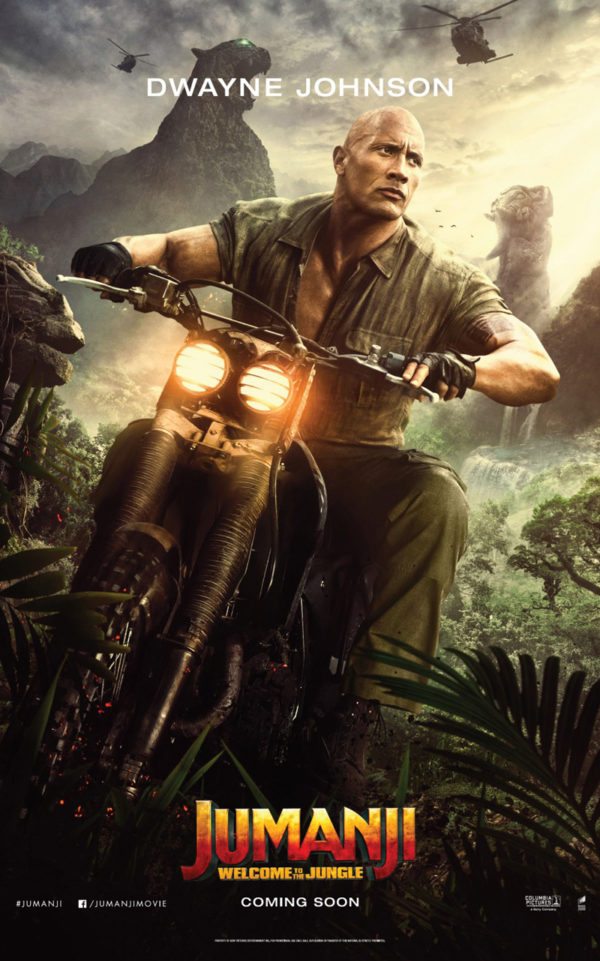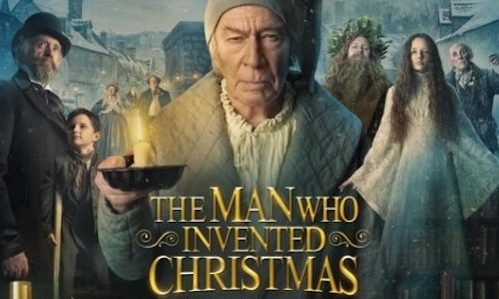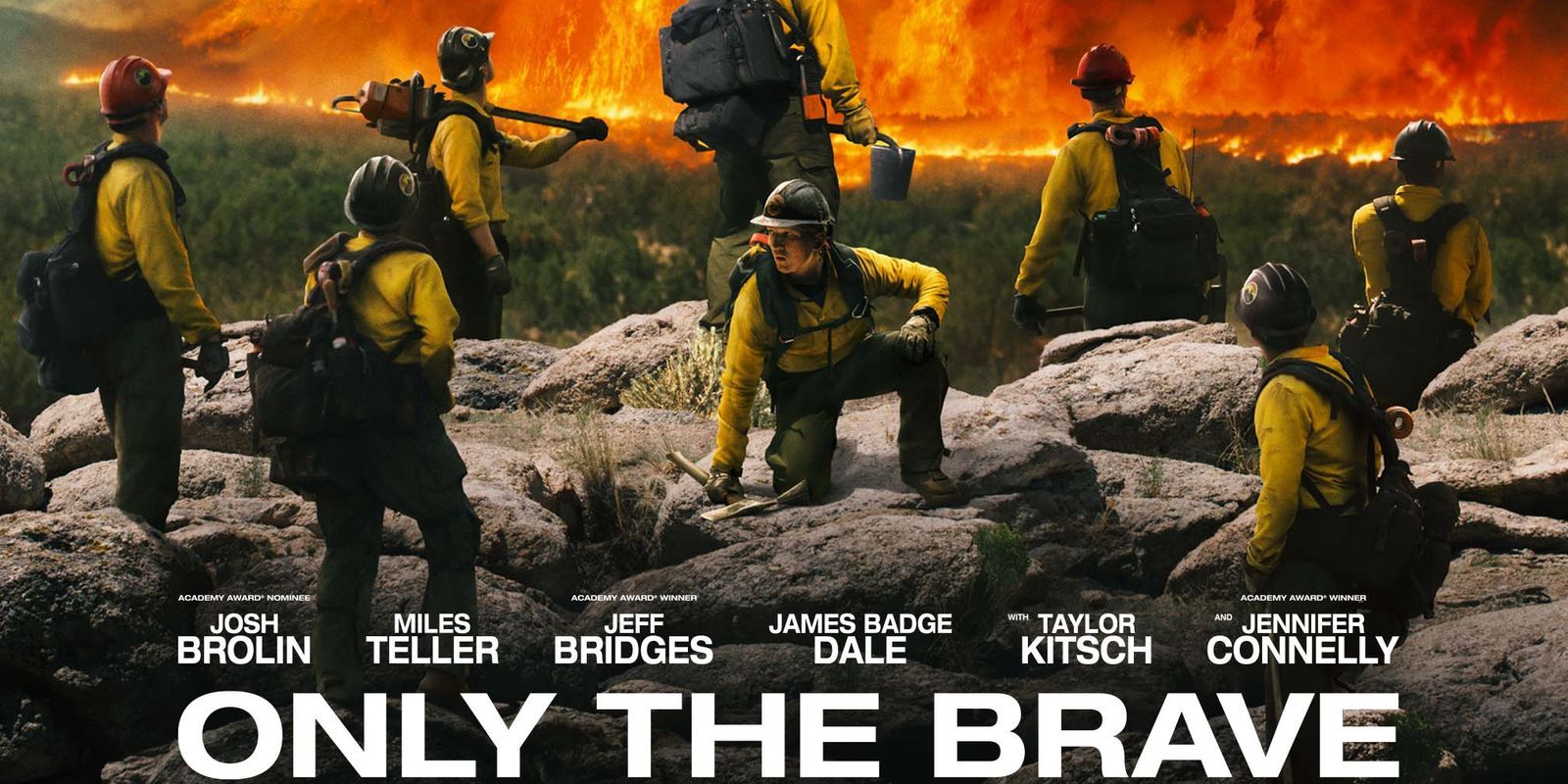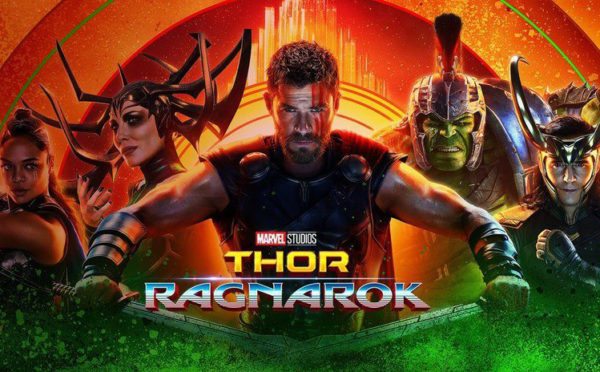2017 has been an interesting year for film, with most of the years best pieces of cinema very sparsely scattered throughout the year amongst a majorly poorly performing year. A big fear in the film industry is that the push towards big blockbuster film could lead towards some financial problems for the industry as a whole. It's fair to see as each studio tries to push out a big film that ups the one before we'll lose the diversity of films being released. We should be encouraging creativity, a range of genres, the opportunity to push the boundaries and a move away from films that generate profit in the short term.
What I've really loved about this year is how much live-action family films have made a comeback. There are a collection of films in my top 25 range that have managed to land themselves there because they are shining examples of the family genre. The family genre is generally quite a weak one in recent years, often not costing a great deal to make and making a fine amount of cash around holiday periods. This year has seen the family film reclaim its heart and good-natured storytelling, while blockbuster cinema this year has been underwhelming there is something utterly magical about what the family genre has achieved. This year has seen some surprises with a DC film scoring higher than a Marvel film and the Star Wars film failing to make my top 25; made even stranger by my top three films all being sequels. If you want to see where the best and worst wound up, keep reading...
The Best:
5. Hidden Figures - 9/10
This film is a very strong contender and managed to hold the number one spot on my top five for the first four months straight. It's an inspired film retelling the struggles African-American women faced working in NASA; putting work towards computing and mathematical equations. It has a light, entertaining tone that is balanced out by a serious introspection at the racial and gender divide that existed at the time. It is a message of perseverance, of overcoming and it demands us to make the same strides. This was the sort of film that I hoped to see more of throughout 2017 and we certainly did get a lot of films which tried to emulate it.
https://ciaranknight.blogspot.co.nz/2017/01/hidden-figures.html
4. Wind River - 9/10
Wind River is another film with a lot to tell, a strong message that courses throughout this film about the plight of Native American people. There is a very majestic portrayal of nature here; a very raw and feral depiction of the surroundings which hold power over the characters and the audience alike. This story lays out how there is no missing persons registry for Native American women to this day in a narrative that is gripping and emotionally moving. My only gripe about this film was that the message seemed to be delivered by the wrong choice of protagonist, yet in spite of that the cast was solid and there were some astounding Native American performers being given ample opportunity to shine.
https://ciaranknight.blogspot.co.nz/2017/09/wind-river.html
3. Blade Runner 2049 - 9/10
If Blade Runner 2049 doesn't win an Oscar for Best Special Effects I'll be incredibly shocked. This is a film that has an incredible eye for detail, with every camera shot, every special effect, every frame adding a new dimension to the cinematic wonder this film is. The original Blade Runner is given a rather effective homage, with the narratives reaching a great point of being interconnected without relying heavily upon one another. This is a new Blade Runner with a different society to comment upon. In this treatment, we see what is an astounding move; making two of the main leading protagonists non-human. Blade Runner 2049 charts unknown territory and reaps the rewards, presenting audiences with a film that is not merely a sequel to the original but a gamechanger as well.
https://ciaranknight.blogspot.co.nz/2017/10/blade-runner-2049.html
2. Guardian Of The Galaxy Vol. 2 - 9.5/10
As I stated when first I posted my review for this film, I think I have found my favourite Marvel film to date. Placing Guardians 2 so high up on my list is a pretty controversial call and is certainly one of the picks that has stemmed most from personal opinion than some of the others. This is one of the many films infamous for dividing audiences this year, with many being disappointed for the excessive use of humour or the fact this film didn't strive to up the stakes as high as it did in the first feature with Ronan. I believe that director James Gunn crafted a film for his characters, rather than chalk up some big event narrative. I was drawn in by how much I came to know each of the characters in greater depth than I had previously; in a lot of ways, it's what team films like this fail to do in their sequels. The colour palette in the Guardians films is incredibly inventive and I'd say that Gunn has made a science-fiction series of films that has brought me back into the genre in a way that other recent science-fiction films have failed to do.
https://ciaranknight.blogspot.co.nz/2017/04/guardians-of-galaxy-vol-2.html
1. Paddington 2 - 9.5/10
Earlier I talked a lot about how much I've enjoyed the resurgence of the live-action family film, well a number of these films have made my top 25 but none managed to do quite so well as this small British flick about a bear from Peru. The moral of the story is crystal clear throughout, one that wins you over as an audience almost straight away. It is almost impossible not to be rooting for Whishaw's Paddington; he's a model protagonist and indeed seems to unapologetically be the shining protagonist to have emerged from 2017. You'll laugh at nearly every gag, pun or witty line all while following a rather entertaining adventure involving Paddington, the Brown family and a costume-changing Hugh Grant at his very best. This film knows exactly when to throw out some highly emotional scenes and ends the film perfectly, showing a very clear attention to structure and tone. A model family film and my personal favourite for 2017.
https://ciaranknight.blogspot.co.nz/2017/12/paddington-2.html
While many films have been average this year, I'm happy to say that they have remained merely that. The following list of worst films from throughout the year stem mainly from the first half of the year and were so awful that nothing much truly surpassed them...
5. Baywatch - 2/10
This is a film that I almost didn't go to see in cinemas this year, I'm quite disappointed that I didn't follow through on that. Unfortunately, due to my attendance, I was presented with a film that barely managed to present a plot; even then it took half the film to begin evidencing this type of structure. Its a pretty basic comedy film that falls into lowbrow humour and slapstick antics almost immediately and is only ever made half good by the acting chops of Dwayne Johnson, Zac Efron and Priyanka Chopra. This film drags itself out and is quite a superficial attempt to profit from the Baywatch title more than anything else.
https://ciaranknight.blogspot.co.nz/2017/06/baywatch.html
4. Bad Moms 2 - 2/10
I really enjoyed the first Bad Moms quite a bit, it placed itself pretty highly amongst the films from last year. This year the exact same film is presented without any of the substance, there's a real push to make the same formula fit more of a Christmas theme with very little else thrown into the mix. Of the new additions to the film, we have Christine Baranski, Susan Sarandon and Cheryl Hines; a trio of actresses whom the film revolved around and really managed to drag the spark of the feature. This Bad Moms was a lewd, failed attempt to make lightning strike twice.
https://ciaranknight.blogspot.co.nz/2017/11/bad-moms-2.html
3. Snatched - 1/10
A few years ago I watched the film, Trainwreck, another Amy Schumer film that I was entertained by and hoped to see more of. Since then Schumer has scandalised the world by ripping comedy straight from other comedians, developing a much cruder form of delivery and making this wreck of a film. The comedy in this film is constant no matter which character is speaking; you feel like you're being pitched one really awful stand-up comedy bit most of the time. This film relies on Amy Schumer's sense of humour to make or break the feature and not only does it break it, but it bombs it.
https://ciaranknight.blogspot.co.nz/2017/05/snatched.html
2. Valerian And The City Of A Thousand Planets - 1/10
Every single one of my bottom five for this year is a comedy film, except for this one. Valerian is an obnoxious piece of cinema that feels like it was pulled out of the Stone Age. This film is nothing short of rather crude, hard to watch sexist drivel; it feels like it was made by a creative team that doesn't understand the direction cinema is moving in and so isn't a film for most audiences. The plot is a mess, dealing out lengthy dull moments of exposition or failing to provide the audience with any information at all. A large aspect of this film relies on the audience guessing at plot details and hoping they have managed to pick up on details that don't even exist within the film. This film looks like a cheap blockbuster from the early 2000s and it's disappointing to see such a waste of time presented in 2017.
https://ciaranknight.blogspot.co.nz/2017/08/valerian-and-city-of-thousand-planets.html
1. Gary Of The Pacific - 1/10
This year sees four of the five worst films all stemming from the comedy genre; not a huge surprise considering recent standards for these films but disappointing nonetheless. The fact it is a New Zealand/Cook Island comedy that marks the years worst is not terribly surprising considering a likewise film I saw a couple years back called Three Wise Cousins. Gary Of The Pacific has held the bottom slot on my list since March, making it a very weak contender for a long time now. This film doesn't draw a single laugh beyond two scenes and it is certainly never the leading cast that generates these moments of comedy. There is no commitment to telling a narrative you care about or presenting characters who develop into likeable roles; instead, this film highlights the flaws with comedy films currently, presenting narcissistic protagonists and edging them along with lazy writing.
https://ciaranknight.blogspot.co.nz/2017/03/gary-of-pacific.html
I have reviewed 88 films over the course of this year and they've been certainly a very different bunch to watch. If you want to see where some of the big names or your personal favourites wound up have a look below; and if you had a top five I'd love to hear about them!
- Paddington 2 – 9.5/10
- Guardians Of The Galaxy Vol. 2 – 9.5/10
- Blade Runner 2049 – 9/10
- Wind River – 9/10
- Hidden Figures – 9/10
- Spider-Man: Homecoming – 8.5/10
- Atomic Blonde – 8.5/10
- T2: Trainspotting – 8.5/10
- War For The Planet Of The Apes – 8.5/10
- Life – 8.5/10
- Jumanji: Welcome To The Jungle – 8.5/10
- The Edge Of Seventeen – 8.5/10
- The Man Who Invented Christmas – 8.5/10
- Going In Style – 8.5/10
- King Arthur: Legend Of The Sword – 8/10
- Get Out – 8/10
- Manchester By The Sea – 8/10
- Only The Brave – 8/10
- The Big Sick – 7.5/10
- Logan Lucky – 7.5/10
- Geostorm – 7.5/10
- Middle School: The Worst Years Of My Life – 7.5/10
- Monster Trucks – 7.5/10
- xXx: Return Of Xander Cage – 7.5/10
- Kong: Skull Island – 7.5/10
- The Hitman’s Bodyguard – 7.5/10
- Table 19 – 7/10
- Pork Pie – 7/10
- The Fate Of The Furious – 7/10
- Smurfs: The Lost Village – 7/10
- Star Wars Episode VIII: The Last Jedi – 6.5/10
- Alien: Covenant – 6.5/10
- A Cure For Wellness – 6.5/10
- Collateral Beauty – 6.5/10
- Passengers – 6.5/10
- The Disaster Artist – 6.5/10
- The Boss Baby – 6.5/10
- Red Dog: True Blue – 6.5/10
- Patriots’ Day – 6/10
- Split – 6/10
- Gold – 6/10
- Logan – 6/10
- Ghost In The Shell – 6/10
- Beauty And The Beast – 6/10
- Daddy’s Home 2 – 6/10
- Justice League – 6/10
- Thor: Ragnarok – 6/10
- Flatliners – 6/10
- Moonlight – 6/10
- 6 Days – 6/10
- A Street Cat Named Bob – 6/10
- Lion – 5.5/10
- Ballerina – 5.5/10
- Wonder Woman – 4.5/10
- Before I Fall – 4.5/10
- Their Finest – 4.5/10
- Kingsman: The Golden Circle – 4.5/10
- Power Rangers – 4.5/10
- Baby Driver – 4/10
- Assassin’s Creed – 4/10
- The Mummy – 4/10
- The Lego Batman Movie – 4/10
- Pirates Of The Caribbean: Dead Men Tell No Tales – 4/10
- American Assassin – 4/10
- Murder On The Orient Express – 4/10
- Master – 4/10
- Fences – 4/10
- Rings – 4/10
- Dance Academy – 4/10
- A Dog’s Purpose – 4/10
- Live By Night – 3.5/10
- The Great Wall – 3.5/10
- CHiPs – 3/10
- Rough Night – 3/10
- The Dark Tower – 3/10
- The House – 3/10
- Silence – 3/10
- Happy Death Day – 3/10
- The Changeover – 3/10
- Fist Fight – 2.5/10
- Fifty Shades Darker – 2.5/10
- Transformers: The Last Knight – 2/10
- Resident Evil: The Final Chapter – 2/10
- Baywatch – 2/10
- Bad Moms 2 – 2/10
- Snatched – 1/10
- Valerian And The City Of A Thousand Planets – 1/10
- Gary Of The Pacific – 1/10
Here's to 2018, I can't wait to see where cinema goes from here!
